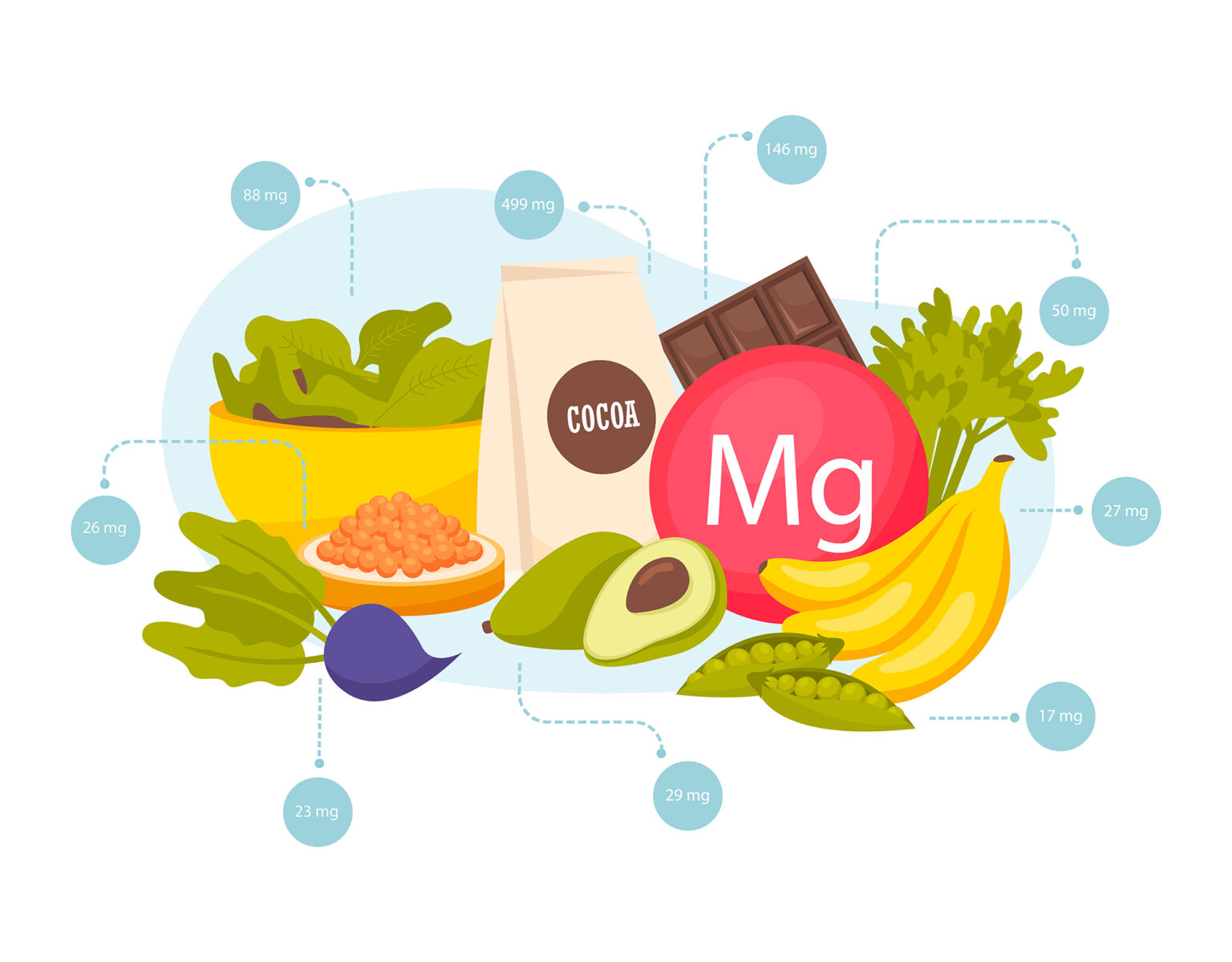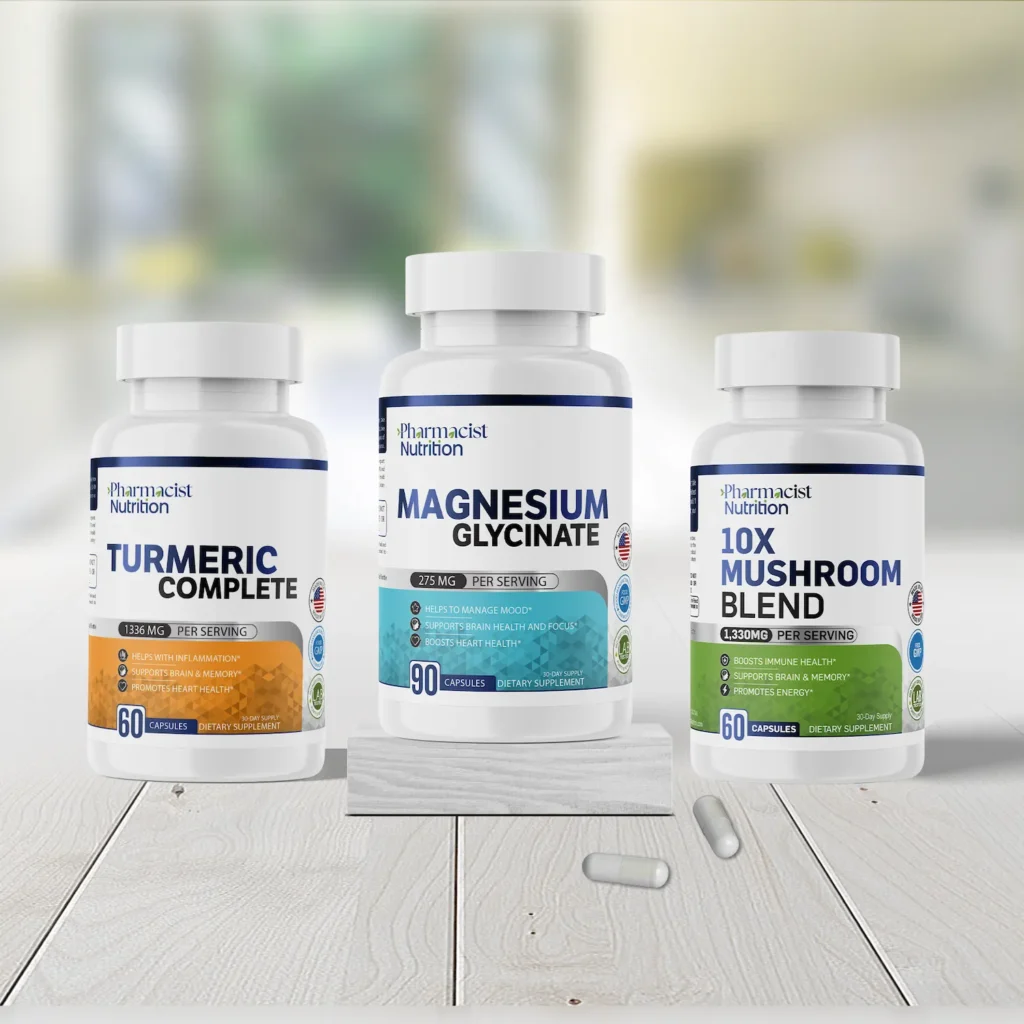
Imagine this: You need to take magnesium.
Either because you went to the doctor and they told you to.
Or… you’re tired all the time even though you slept well. You get muscle cramps frequently, or you’re anxious or you’re stressed and you found that magnesium could help with all those things.
Now you’re at the store looking for magnesium and you find a wall of different kinds.
Most people are going to choose off details of the label: it looks pretty or it looks reliable. But in most cases, what I’ve seen at the pharmacy, you’re gonna come home with a bottle of this:
Magnesium Oxide.
Was this the right one?
Probably not, in most cases.
If you’re new here, my name is Dr. Albert Chan and I’m a pharmacist and chemical engineer and I’m going to be breaking down the difference in magnesium supplements because the difference could be huge.
First, let’s talk about what you’re actually trying to get out of these supplements.
If your doctor told you that you needed more magnesium in your diet, we’re talking about elemental magnesium.
When you go to the store and you see that Magnesium Oxide, Magnesium Citrate, Magnesium Chloride, what you can imagine these are, are pieces of magnesium attached to what we call salts.
And what salts are in this context are molecules that are attached to Magnesium to make them stable because magnesium by itself is a charged particle.
And we use salts for a lot of things:
But the key takeaway here is, if we’re looking to get the most efficient Magnesium Supplement for our purposes, we need to choose the right product.
So back to the store.
We’re looking at Magnesium Oxide, which has 60% elemental magnesium and we have Magnesium Citrate that has 16% elemental magnesium.
It’s a clear choice right?
But that’s where we run into some issues.
We need to talk about bioavailability, which is how well your body can absorb certain things and it’s the quality in medicine that we look at because if you’re not absorbing what we’re trying to give you, there’s really no point giving it to you if there’s other alternatives.
Magnesium Oxide, although has 60% elemental magnesium, it’s bioavailability… the amount that you can actually absorb is as low as 4%. Which means that 400mg tablet you just bought, only about 10mg has the possibility of being absorbed.
Magnesium Hydroxide, even worse, has a 42% elemental magnesium content but has a bioavailability of about 15%. That 400mg tablet now has the possibility of up to about 25mg.
My personal favorite is Magnesium Glycinate which has a measly 14% elemental magnesium, has a bioavailability of up to 90% which amounts to whopping 50mg available for absorption with the same tablet strength. We’re talking about a 5 times increase now from magnesium oxide.
You might be wondering at this point why Magnesium Oxide is so popular.
Well let’s imagine how you get these products.
You can either mine it as Magnesium Carbonate, MgCO3 (magnesite), or Calcium Magnesium Carbonate, CaMg(CO3)2 (dolomite). Where when you heat these up in a kiln, it decomposes the carbonates which are those CO3s into a final product of MgO which is…magnesium oxide!
Or you can also get magnesium from seawater where we treat it with lime (which is calcium oxide, not the fruit) to produce magnesium hydroxide Mg(OH)2.
From there, to make like, magnesium chloride we can add some hydrochloric acid to either Magnesium Oxide or Magnesium Hydroxide.
Or to make magnesium gluconate we can add gluconic acid.
There are 2 reasons why you’ll see magnesium oxide so prominently.
The first one being, it simply cost more money to make, these extra processes simply cost money. If these business created a magnesium product where they can say has 60% elemental magnesium and stop there, it could be very lucrative to sell that, because any subsequent step could cost more money.
The second thing is magnesium oxide is… simply useful. Believe or not, there’s a place for it. Because it’s not absorbed well, it actually makes a really good laxative but it’s probably not going to be marketed as that in tablet form at least.
It’s likely going to be marketed simply as a magnesium supplement which I personally think is less practical because I think it’d be more enjoyable eating like, 4 almonds for the extra magnesium at that point.
Finally, I’ll get this question a lot at the end of any conversation about a supplement.
Now that we’ve established which kind of magnesium to get, how much do I need and what’s the Best one.
I’ve mentioned it earlier. I would prefer Magnesium Glycinate because of how much you’re getting at the same dose.
Most people aren’t keen to having to take 5-15 pills a day of the same medicine just to get an equivalent effect. Also you’ll be taking much more of the inactive ingredients for like, no reason.
As far as how much of it to take, that could really depend on your diet, if you eat lots of nuts, lots of fish, lots of cooked spinach, you’re probably set, you don’t need it.
If you think you need magnesium or you want some insurance that you’re getting enough, I personally like about 700-800 mg.
The RDA or recommended dietary allowance is about 300mg for a woman and 400mg for a man but we have to remember that’s on average, for sustained health–for maintenance.
The larger dose of magnesium is insurance beyond a regular diet to account for people who are maybe athletes or, if you work out a lot, just to ensure you have proper muscle recovery and you experience less cramping.
If you have anxiety or you’re under high stress, you might need a little more.
If you’re pregnant, you might need a little more.
If you’re on the older side and have an absorption deficiency, a little more could be mandatory.
Lastly, the question I’ll get after a bit of conversation is again, what is the best one??
I think most people just wanted me to choose for them from the start and wasn’t actually interested in the reason why.
If you’re at the store, find the magnesium glycinate. If there’s a brand that you’re familiar with and you trust, and the dose is cost effective, it’s probably okay.
If you’re completely unfamiliar, I like to see “Made in the US”. Nothing against foreign products, I’m just more familiar with regulations we have here. Although supplements themselves aren’t FDA regulated they do regulate how things are produced and what is mandatory on food and supplement labels.
I like to see GMP-certified so I know there was some process that went into verifying that the facility where the product was made is clean and has documentation of the steps in the process.
I also like to see 3rd party tested to just ensure an unbiased assessment of the product.
Well, that’s the end of our talk.
I hope it cleared things up for some people.
I appreciate you making it to the end of this post. If you think this brought you any value at all, please consider signing up for our newsletter below.
If you’re looking for more information on supplements, health, and our healthcare system, check us out on YouTube as PharmacistNutrition and check out our Podcast Titled “Mini Med Minutes” available on most streaming platforms.
Again, thanks for tuning in and I’ll see you next time.
Images from FreePik
(As Transcribe From Mini-Med Minutes Podcast) Welcome back everybody to another episode of Mini-Med Minutes and today we’re
(As Transcribe From Mini-Med Minutes Podcast) Welcome back everybody to another episode of Mini-Med Minutes. This
(As Transcribe From Mini-Med Minutes Podcast) Welcome back everybody to another episode of Mini-Med Minutes. I
(As Transcribe From Mini-Med Minutes Podcast) Welcome back everybody to another episode of Mini-Med Minutes.
(As Transcribe From Mini-Med Minutes Podcast) Welcome back to MINI-MED MINUTES The presidential election is on
(As Transcribe From Mini-Med Minutes Podcast) Welcome back to Mini-Med Minutes. And today… we’re going to

Join our community to receive:
Sign up now and take the first step towards a healthier you!